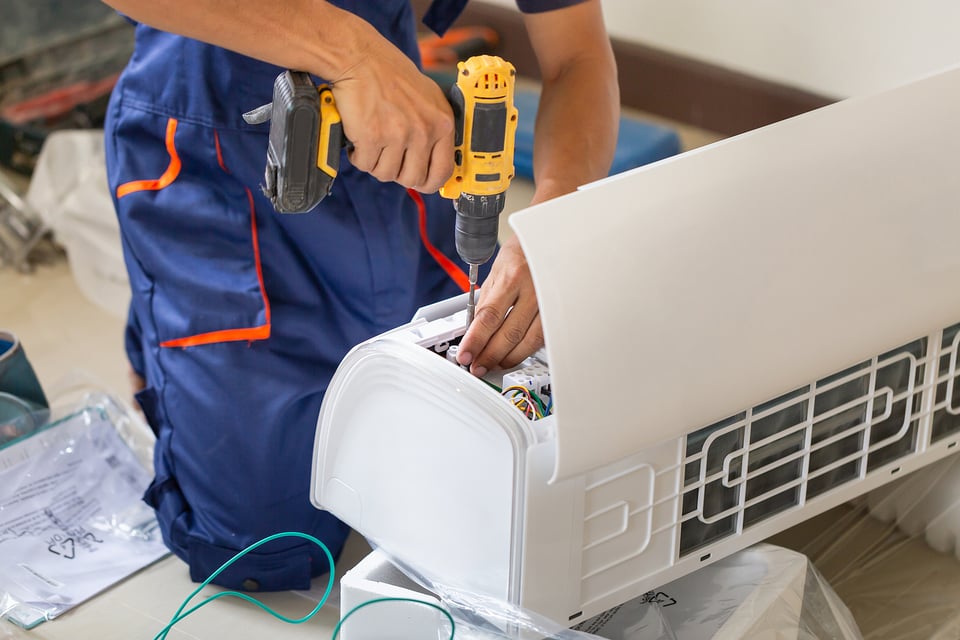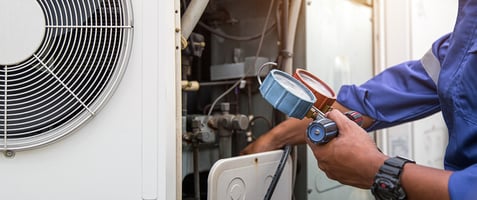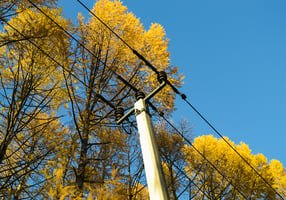In the modern home, HVAC (heating, ventilation, and air conditioning) systems play a crucial role...
Cooling Down in the Dog Days of Summer: Electrical Upgrades Needed?

As scorching heat has settled on much of the country this summer, finding effective cooling strategies has become a top priority for almost everyone. Whether you're thinking of adding window air conditioning units or a new central HVAC system, you'll need to carefully consider your existing electrical capacity. If you need some cooling down in the “Dog Days” of summer, you may also need some electrical upgrades.
Why Electrical Capacity Matters for AC Window Units and Central Air
Adding cooling systems requires careful consideration of the available electrical capacity, especially in an older home. Before taking the plunge, you'll want to carefully weigh the pros and cons of both window units and a central HVAC installation. This includes ensuring the circuits to which you plan to connect the unit can handle the additional load.
- Window Units: Window air conditioning units are a popular option for cooling individual rooms, as they are self-contained and simply plugged into a standard electrical outlet. In the "pros" column, window air units are far more affordable than a complete central air system, at least in terms of up-front costs. They're also much less complicated to install, which means almost anyone can complete the task without hiring a professional. Because these units facilitate zoned cooling for specific rooms as needed, you can potentially save energy over cooling unused rooms. The lowered barrier to entry is appealing, but it's still vital to weigh the cons. These include a potentially negative aesthetic impact, as they can be unsightly depending on their placement. There's also a flip side to the ‘zoned cooling’ coin: window air units are not suitable for whole-home cooling. Investing in a single unit can be a lower-cost, lower-stress option, but costs can, (and do), compound quickly when you have to add multiple units.
- Central Air Conditioning: Installing central air conditioning is the most direct path to cooling your entire home. However, because it is a much more substantial investment, it's even more vital to consider all aspects. Pros: Central air ensures uniform temperature management in every room of the house. Your home's exterior appearance is preserved as well, since there are no unsightly window units visible from outside of your house. Cons: Central air installation is expensive, from vital electrical upgrades to ductwork and everything in between; and, if your home's insulation is insufficient, it can easily result in higher energy consumption and a corresponding jump in energy costs.
Essential Electrical Considerations for Cooling Your Home
When you're considering the addition of cooling systems, especially for an older home, the electrical system's capacity is a vital factor. Before settling on any solution, consulting with a professional, licensed electrician is highly advised. A knowledgeable pro can accurately assess your home's current electrical capacity and help you determine whether upgrades to your existing system will be required. In many cases, an upgraded electrical panel or the addition of dedicated circuits will be needed in order to prevent overloads.
At Wilcox Electric, we specialize in finding solutions for all your electrical problems. While we don't install heating and cooling systems, we have a comprehensive knowledge and understanding of your electrical system's essential role in the functionality of any cooling solutions you have installed. The higher the mercury rises, the more critical it becomes to make informed, strategic decisions for your home so that you can start moving forward with a plan to keep your home cool and comfortable throughout the dog days of summer, and appropriately temperate throughout the rest of the year.
Contact us today to schedule a complete electrical assessment to ensure your home is ready to support the cooling solutions you've chosen.




